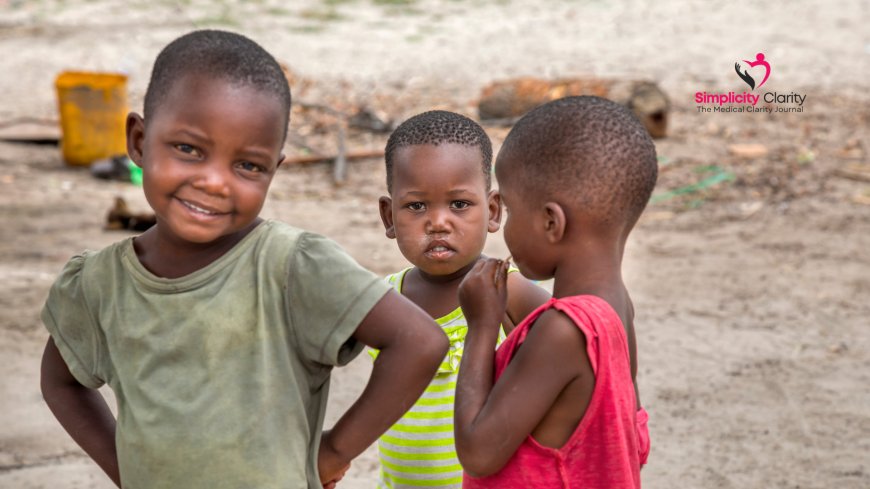US Cuts $50M Health Aid to Zambia Over Systematic Theft: A Wake-Up Call for Kenya and Africa
The United States has suspended $50 million in health aid to Zambia due to systematic medicine theft, exposing deep-rooted corruption in African public health systems. This article explores the Zambian crisis, its human cost, and offers a Kenyan case study on rampant drug theft, urging urgent reforms across the continent.

Introduction
In what has been described as a “painful but necessary” move, the United States has announced the suspension of $50 million in healthcare aid to Zambia, citing the systematic theft of donated medicines and medical supplies. According to US ambassador to Zambia Michael Gonzales, despite repeated warnings, the Zambian government failed to act on credible reports showing widespread corruption in its health sector, leading to the illicit sale of life-saving drugs meant to be free for the public.
This decision, though targeted at Zambia, sends a chilling message to many African countries grappling with similar issues: that unchecked corruption, especially in the healthcare sector, has devastating consequences. Kenya, like Zambia, has faced repeated scandals involving the theft of essential drugs from public hospitals. The two nations are mirror reflections of a systemic crisis eroding trust, weakening health systems, and putting millions of lives at risk.
The Zambian Situation: A Snapshot of Systemic Failure
For years, Zambia’s healthcare system has depended heavily on donor funding. About a third of its public health spending is supported by the United States alone. However, a year-long investigation by the US embassy in Zambia revealed that over 2,000 pharmacies across the country were selling medicines and supplies donated by the US and other partners. Incredibly, 95% of pharmacies visited were found to be selling stolen goods, with nearly half of them offering US-funded medications like HIV, TB, and malaria treatments.
Even more concerning, law enforcement efforts focused only on "low-level actors," with few mid-tier arrests and no real effort to dismantle the criminal networks behind the theft. Gonzales, speaking with visible emotion, stated:
“We are no longer willing to underwrite the personal enrichment of fraudsters or the corrupt when patients go without or have to buy life-saving medications that we have provided for free.”
Kenyan Case Study: Ghosts in the Medicine Cabinet
Kenya offers a painfully relevant case study. Over the past decade, the country has seen a string of scandals involving the theft of drugs from public health facilities. Investigative journalism and reports from the Kenya Medical Supplies Authority (KEMSA) have shown how thousands of drugs disappear from national stores and reappear in private chemists—often at highly inflated prices.
In 2020, a COVID-19-related scandal rocked Kenya when millions of dollars in donor funds and medical supplies meant for frontline workers were looted through procurement fraud at KEMSA. Despite public outrage and multiple investigations, prosecutions have been rare and weak.
Effects in Kenya Include:
-
Increased patient mortality due to lack of access to free or affordable essential medicines.
-
Erosion of public trust in government health institutions.
-
Overburdened healthcare workers, often accused of complicity or left helpless amid shortages.
-
Escalation of out-of-pocket expenses, pushing more families into poverty.
Just like Zambia, Kenya has historically benefited from massive donor health investments through USAID, the Global Fund, and PEPFAR (President’s Emergency Plan for AIDS Relief). But with theft and mismanagement rampant, Kenya, too, faces the looming threat of similar aid cuts.
The Human Cost of Stolen Medicines
Corruption in healthcare is not a victimless crime. The price is paid in human lives and suffering. When malaria medicine is stolen and sold in black markets, children die. When HIV treatment meant to be free is diverted and resold, adherence drops, resistance builds, and entire communities face the resurgence of previously controlled diseases.
In many African settings, especially in rural and informal settlements, these medicines are the only lifeline for millions of poor families. The theft of such supplies isn’t just criminal—it’s a violation of human rights.
Lessons for Africa: Accountability or Consequences
What Zambia is now experiencing should serve as a wake-up call for African governments. With global aid becoming more conditional and accountability-focused, countries must move from mere rhetoric to action.
Key lessons include:
-
Reform and strengthen public procurement systems to minimize opportunities for theft and fraud.
-
Create and enforce independent audit mechanisms for donor-funded health programs.
-
Hold top officials accountable, not just junior staff scapegoats.
-
Digitize medicine supply chains for traceability using barcoding and real-time monitoring systems.
-
Protect whistleblowers and encourage community reporting of stolen or resold drugs.
-
Public engagement and civic education to raise awareness on the danger of corruption in health.
A Call to Action for Kenya
Kenya has already been flagged in several donor reviews for weak controls in its medicine supply chain. The KEMSA reforms, though ongoing, must be transparent and genuinely transformative. Kenya must not wait for an aid freeze to act. Instead, it should use Zambia’s crisis as a catalyst to safeguard its public health infrastructure.
President William Ruto’s administration has a unique opportunity to show leadership by launching a national anti-theft campaign in the health sector, fast-tracking reforms, and cooperating fully with both local and international oversight bodies.
Conclusion
The US aid cut to Zambia is not just a bilateral diplomatic issue—it’s a warning to the continent. Africa cannot afford to let corruption sabotage its fight against preventable diseases. Kenya, standing at a similar crossroads, must decide: reform or risk losing critical international health partnerships.
Patients cannot afford another missing box of medicine. It is time for a continental reckoning.
What's Your Reaction?













































































































































































